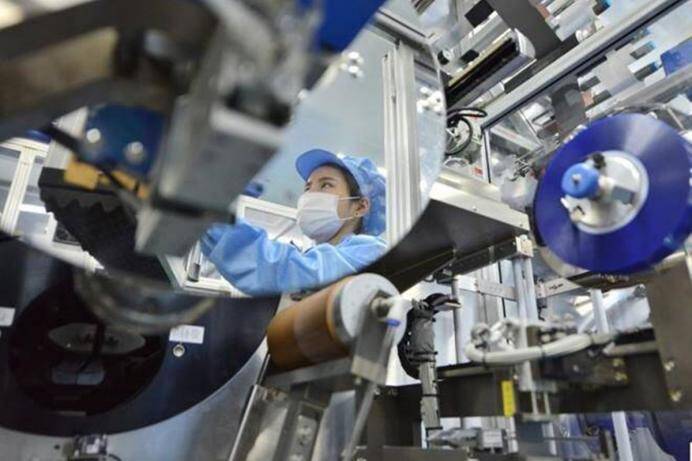Understanding the Advantages of LiFePO4 Rechargeable Batteries for Your Electronic Devices
LiFePO4 rechargeable batteries, also known as Lithium Iron Phosphate batteries, have gained popularity in recent years due to their advantages over traditional rechargeable batteries. These batteries are widely used in various electronic devices, including electric vehicles, solar power systems, medical devices, and backup power supplies, among others.
One of the primary advantages of LiFePO4 batteries is their high energy density. They can store more energy in a smaller volume compared to other rechargeable batteries, making them ideal for devices that require high power and long run times. This high energy density also means that they have a longer lifespan compared to other rechargeable batteries. LiFePO4 batteries can provide over 2000 charge and discharge cycles while maintaining 80% of their capacity, which is significantly more than other rechargeable batteries.
Another significant advantage of LiFePO4 batteries is their excellent safety profile. Unlike traditional rechargeable batteries, they are less likely to catch fire or explode due to overcharging, overheating, or short-circuiting. This is because LiFePO4 batteries are designed to have a stable and robust structure that is resistant to thermal runaway. Additionally, they have a lower risk of leakage and do not contain harmful substances like lead or cadmium, making them environmentally friendly.

LiFePO4 batteries are also more efficient than other rechargeable batteries. They have a lower self-discharge rate, which means they can retain their charge for longer periods without needing frequent recharging. This makes them ideal for devices that are not in frequent use, such as backup power supplies and emergency lighting systems.
One of the most significant advantages of LiFePO4 batteries is their fast charging capabilities. They can charge up to 80% of their capacity within an hour, which is significantly faster than other rechargeable batteries. This fast charging capability also means that they can be used in electric vehicles, where a quick charging time is essential.
LiFePO4 batteries are also more environmentally friendly than other rechargeable batteries. They are recyclable, and the materials used in their production are less harmful to the environment. Additionally, LiFePO4 batteries have a longer lifespan, which means fewer batteries are needed over time, reducing waste.
In summary, LiFePO4 rechargeable batteries are an excellent option for various electronic devices due to their high energy density, long lifespan, excellent safety profile, efficiency, and fast charging capabilities. They are also environmentally friendly and recyclable. As the demand for rechargeable batteries continues to grow, LiFePO4 batteries are poised to become a leading rechargeable battery technology.
-
 The High Capacity 12V 100Ah LiFePO4 Battery Pack is a game-changing product for those looking for a reliable and long-lasting power supply. This battery pack offers an exceptional combination of high capacity, long cycle life, and safe performance. It is designed to provide a sustainable and eco-friendly power source for various applications such as solar power systems, RVs, boats, electric...اقرأ أكثر
The High Capacity 12V 100Ah LiFePO4 Battery Pack is a game-changing product for those looking for a reliable and long-lasting power supply. This battery pack offers an exceptional combination of high capacity, long cycle life, and safe performance. It is designed to provide a sustainable and eco-friendly power source for various applications such as solar power systems, RVs, boats, electric...اقرأ أكثر -
 Introduction Communication has become an integral part of our lives. Whether it is sending a text message, making a phone call, or browsing the internet, we rely on various electronic devices to stay connected. However, the efficiency and longevity of these devices heavily depend on the power source they use – batteries. Among the many types of batteries available,...اقرأ أكثر
Introduction Communication has become an integral part of our lives. Whether it is sending a text message, making a phone call, or browsing the internet, we rely on various electronic devices to stay connected. However, the efficiency and longevity of these devices heavily depend on the power source they use – batteries. Among the many types of batteries available,...اقرأ أكثر -
 Lithium iron phosphate (LiFePO4) batteries are a relatively new rechargeable battery technology that has garnered interest in recent years owing to their improved performance capabilities, longer lifespan, and lower environmental impact than traditional lithium-ion batteries. Despite their rising popularity, the technology is not without its drawbacks. In this article, we will explore the pros and cons of Lithium Iron Phosphate...اقرأ أكثر
Lithium iron phosphate (LiFePO4) batteries are a relatively new rechargeable battery technology that has garnered interest in recent years owing to their improved performance capabilities, longer lifespan, and lower environmental impact than traditional lithium-ion batteries. Despite their rising popularity, the technology is not without its drawbacks. In this article, we will explore the pros and cons of Lithium Iron Phosphate...اقرأ أكثر -
 Introduction: As the global energy demand continues to rise, it has become imperative to explore innovative solutions to meet this growing need sustainably. The integration of smart grids with lithium batteries presents a promising avenue for revolutionizing energy management. This article delves into the potential benefits, challenges, and future prospects of this integration. 1. Benefits of integrating smart grids...اقرأ أكثر
Introduction: As the global energy demand continues to rise, it has become imperative to explore innovative solutions to meet this growing need sustainably. The integration of smart grids with lithium batteries presents a promising avenue for revolutionizing energy management. This article delves into the potential benefits, challenges, and future prospects of this integration. 1. Benefits of integrating smart grids...اقرأ أكثر -
 In today's increasingly competitive and fast-paced industrial landscape, businesses are constantly seeking ways to enhance efficiency and improve performance. One crucial aspect that often goes unnoticed but plays a significant role in achieving these goals is the use of high-quality industrial power product batteries. Industrial power product batteries are specifically designed to meet the unique energy requirements of industrial...اقرأ أكثر
In today's increasingly competitive and fast-paced industrial landscape, businesses are constantly seeking ways to enhance efficiency and improve performance. One crucial aspect that often goes unnoticed but plays a significant role in achieving these goals is the use of high-quality industrial power product batteries. Industrial power product batteries are specifically designed to meet the unique energy requirements of industrial...اقرأ أكثر -
 Car batteries are the lifeblood of modern vehicles. They provide the energy needed to start the engine, power the lights, and keep the electronics running. However, even the best batteries can fail at the most inconvenient times. Dead batteries can leave you stranded, waiting for a tow truck or a jump start from a helpful stranger. That's where emergency starter...اقرأ أكثر
Car batteries are the lifeblood of modern vehicles. They provide the energy needed to start the engine, power the lights, and keep the electronics running. However, even the best batteries can fail at the most inconvenient times. Dead batteries can leave you stranded, waiting for a tow truck or a jump start from a helpful stranger. That's where emergency starter...اقرأ أكثر -
 Introduction: Industrial battery chargers play a crucial role in powering up various types of batteries used in industries. These chargers are designed to efficiently recharge batteries, ensuring uninterrupted power supply to various equipment and machinery. With advancements in technology, industrial battery chargers have become indispensable tools for enhancing efficiency and productivity in the industrial sector. In this article, we will...اقرأ أكثر
Introduction: Industrial battery chargers play a crucial role in powering up various types of batteries used in industries. These chargers are designed to efficiently recharge batteries, ensuring uninterrupted power supply to various equipment and machinery. With advancements in technology, industrial battery chargers have become indispensable tools for enhancing efficiency and productivity in the industrial sector. In this article, we will...اقرأ أكثر

